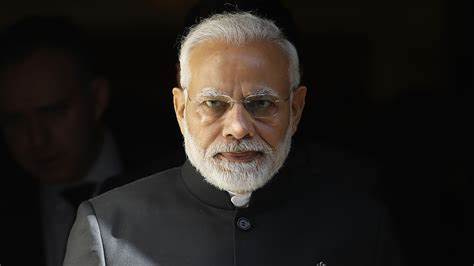Should India be called Bharat? The reasons, reactions and the ideology behind it.

Why India should be called Bharat
A dinner invitation sent by the Indian president to the guests attending the G20 summit in New Delhi has sparked a debate over the name of the country. The invitation, written in English, referred to Droupadi Murmu as the “President of Bharat” instead of the “President of India”. This has led to speculation that the government of Prime Minister Narendra Modi may push for an official name change from India to Bharat.
The name of a country is not just a word. It is a symbol of its history, culture, identity, and aspirations. The name of a country should reflect its true essence and spirit, not its colonial legacy. That is why India should be called Bharat.
Bharat is an ancient Sanskrit word that has been used to refer to the land of India since time immemorial. The word Bharat is derived from the name of a legendary king who unified the country under his rule. The word also means “the cherished” or “the beloved” in Sanskrit. The name Bharat evokes a sense of pride, patriotism, and belonging among Indians.
The name India, on the other hand, was given by foreign invaders who came to plunder and exploit the country. The name India is derived from the river Indus, which was called Sindhu in Sanskrit. The Persians, who invaded India around 500 BC, corrupted the word Sindhu to Hindu, and the Greeks, who followed them, further distorted it to Indos or Indus. The Romans then Latinized it to India. The name India has no connection to the indigenous people or culture of the country. It is a reminder of the centuries of oppression and subjugation that India faced under foreign rule.
The name India also does not represent the diversity and plurality of the country. India is a mosaic of languages, religions, cultures, and histories. The name India implies a homogenous and monolithic entity, which is far from reality. The name Bharat, on the other hand, encompasses the multiplicity and richness of the country. The name Bharat recognizes the different regions, states, and communities that make up the country.
The name Bharat also resonates with the constitution of India, which recognizes both India and Bharat as official names of the country. The preamble to the English version of the constitution starts with the words “We, the people of India…,” and then in Part One of the document it states “India, that is Bharat, shall be a Union of States”. The Hindi version replaces India with Bharat everywhere, except the part defining the country’s names, which says in Hindi, “Bharat, that is India, shall be a Union of States”.
The name Bharat also aligns with the vision and mission of Prime Minister Narendra Modi, who has been leading the country towards progress and development since 2014. Modi has been promoting the idea of a “New India” that is self-reliant, confident, and prosperous. He has also been championing the cause of “Make in India” which encourages domestic manufacturing and innovation. He has also been celebrating the achievements and contributions of Indians in various fields such as science, technology, sports, arts, and culture. He has also been fostering a spirit of unity and harmony among Indians by promoting the slogan of “Sabka Saath Sabka Vikas Sabka Vishwas” (Together with all, development for all, trust of all). All these initiatives reflect the essence and spirit of Bharat.
The name Bharat also has a global appeal and recognition. Many countries in Asia, Africa, and Latin America have changed their names to reflect their indigenous identities and aspirations after gaining independence from colonial powers. For example, Burma became Myanmar, Ceylon became Sri Lanka, Persia became Iran, Siam became Thailand, Rhodesia became Zimbabwe, Zaire became Congo, and so on. These countries have not lost their global stature or relevance by changing their names. In fact, they have gained more respect and dignity by doing so. Similarly, changing the name of India to Bharat will not diminish its global standing or influence. Rather, it will enhance its image and reputation as a proud and powerful nation.
Therefore, it is high time that India should be called Bharat. It is not just a matter of semantics or sentimentality. It is a matter of justice and dignity. It is a matter of reclaiming our past and shaping our future. It is a matter of honouring our ancestors and inspiring our descendants. It is a matter of fulfilling our destiny as Bharat.
What do you think? Should India be called Bharat or keep it as it is? Share your thoughts in the comments below.



